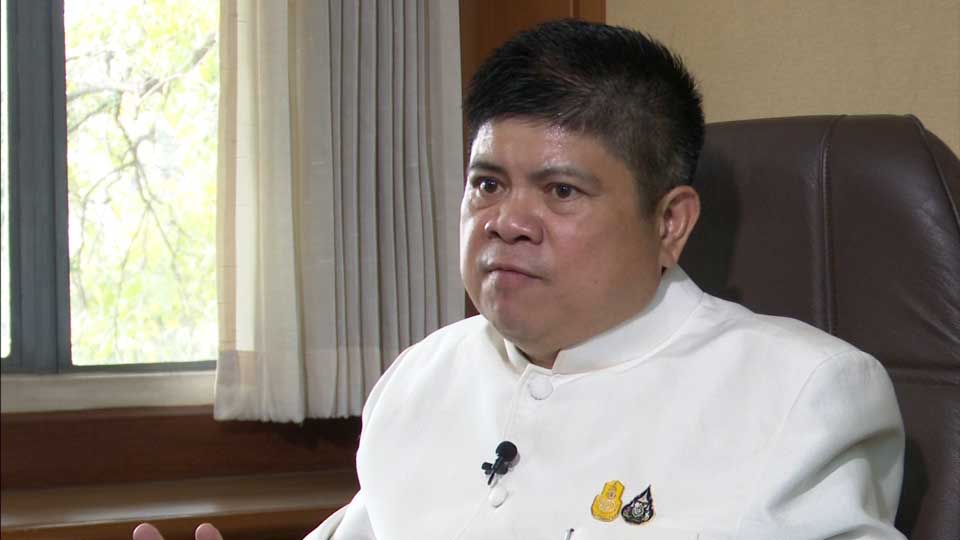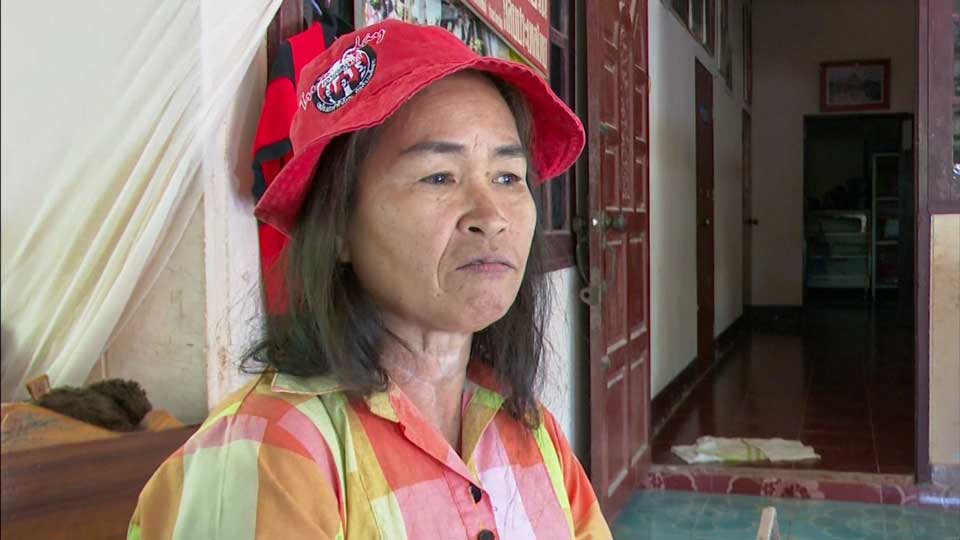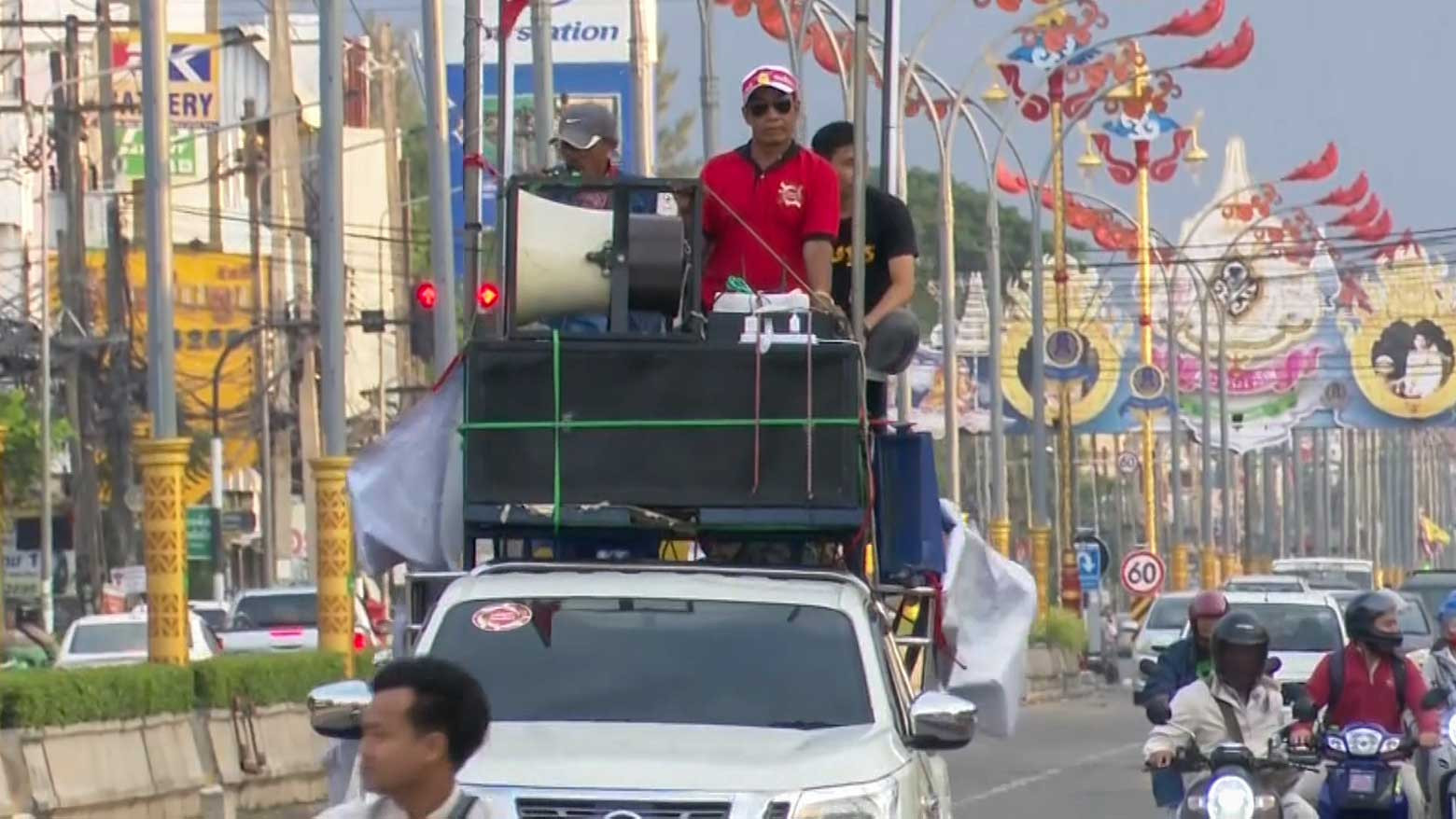The Red Shirts are supporters of two former prime ministers, Thaksin Shinawatra and his younger sister Yingluck, both now living in self-imposed exile since being ousted from power in separate military coups.
The two focused their policies on improving the standard of living of lower-income people through universal healthcare or financial assistance for poor communities. Rural northeast Thailand was their heartland, and many communities there once declared themselves "Red Shirt Villages."
Abrupt about-face
Activities went further than just declarations of loyalty. Suporn Attawong, a Red Shirt leader, even organized a private army to support then-Prime Minister Yingluck. But everything changed when he was temporarily detained after the 2014 coup. After his release, Suporn announced the end of his army and political activities.
Now, he works for Prime Minister Prayut Chan-o-cha; the man who ousted Yingluck when he was Army commander.

"I want to work for a leader who is ready to fix people's problems and who tries to bring unity to this country," said Suporn. "I think Prayut is the one."
Suporn started a project to disband both the Red Shirt villages and their support network. Last year, he traveled to almost every part of the country to urge the Red Shirts to give up their political activities; at the same time supporting them in starting farming cooperatives to earn a living from the land.
"Today, our aims and our goals are to create jobs and income," he said. "We will no longer be somebody's political tool. That means there will be no colors anymore. We will erase the color politics that made people fight on the streets."
Flames of support still flickering
Not all Red Shirts have changed sides, though. One supporter, known only by her nickname Yuan, still professes to be part of the movement and has held onto all her protest materials from the past. Since the most recent coup, however, such views are considered troublesome. Officials have often visited her house to tell her to take down any signs of Red Shirt activity.
Yuan points to placards that read "This house wants Thaksin to come back to Thailand," but says she now has to keep them hidden.
Although her desire for the Shinawatras to return has never diminished, Yuan rarely joins demonstrations now, as the Red Shirt leader in her village has stopped his activities.

"Before, there were leaders," she says. "We could tell them we wanted to go to the protests. Now there are none. There is no money, no funding, no leaders. If we want to go to the protests, we have to go by ourselves."
Change of tactics
Some older Red Shirts see the youth-led demonstrations as an opportunity for their own movement to return. Veteran leader Phanupong Mookdara observes that there are many former Red Shirts joining the demonstrations and supporting the younger protesters, but that they are doing so individually, not as part of the old movement.
Wanting to unite his movement's efforts, Phanupong set up a network called "Red Shirt Progressive 2020" as a means for his fellow Red Shirts to connect and help each other in the struggle for democracy alongside the young protesters. The group attends every new gathering held by the younger people.
But Red Shirt participation in the youth-led movement is still limited to Bangkok and the major cities. That's led Phanupong and his team to visit places that used to be Red Shirt strongholds to try to persuade former activists to join in the current struggle.
"They haven't acted yet, only the young people," says Phanupong. "But if a lot of us join this protest, we'll be able to pressure the government more efficiently."
Though the Red Shirts have seen their influence vanish in Thailand, the current turmoil may present an opening for them to reemerge and join with others in creating a larger wave of pressure for change.
Watch Video 03:34

